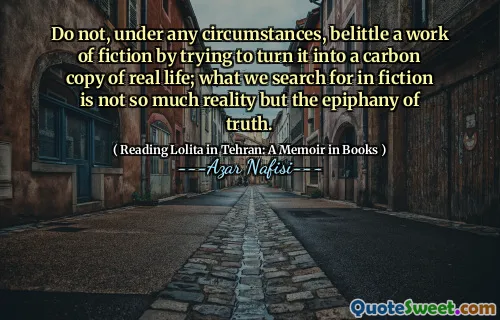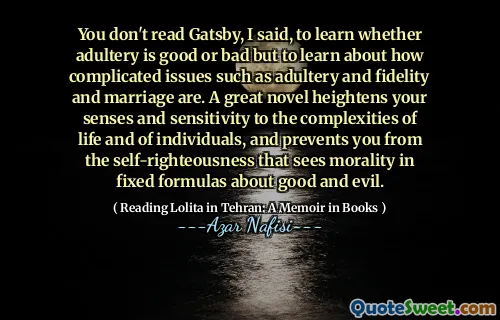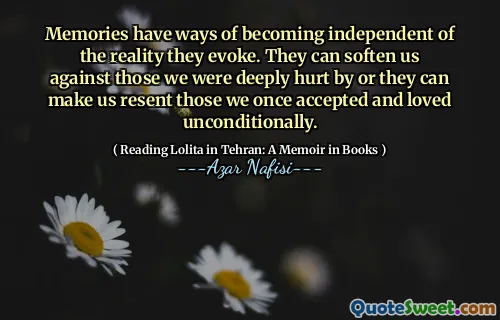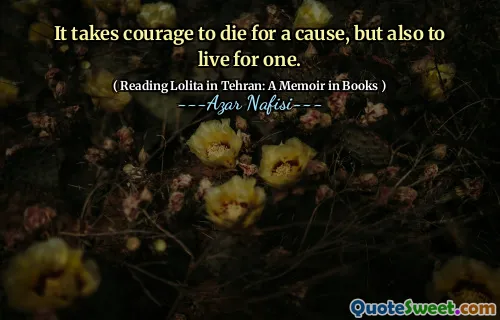
It is said that the personal is political. That is not true, of course. At the core of the fight for political rights is the desire to protect ourselves, to prevent the political from intruding on our individual lives. Personal and political are interdependent but not one and the same thing. The realm of imagination is a bridge between them, constantly refashioning one in terms of the other. Plato's philosopher-king knew this and so did the blind censor, so it was perhaps not surprising that the Islamic Republic's first task had been to blur the lines and boundaries between the personal and the political, thereby destroying both.
📖 Azar Nafisi
In "Reading Lolita in Tehran," Azar Nafisi explores the relationship between personal experiences and political realities. She argues against the notion that personal matters are inherently political, asserting that the fight for political rights fundamentally aims to safeguard individual lives from political interference. While personal and political realms influence each other, they are distinct entities, interconnected through the imagination, which reshapes our understanding of both.
Nafisi points out the manipulation of these boundaries by authoritarian regimes, highlighting that the blurring of personal and political lines can lead to the erosion of both. This tactic, used by historical figures like Plato's philosopher-king and the censors of the Islamic Republic, serves to control individuals by suppressing their personal freedoms. Thus, she emphasizes the importance of maintaining the separation between the two to protect individual rights and freedoms.











